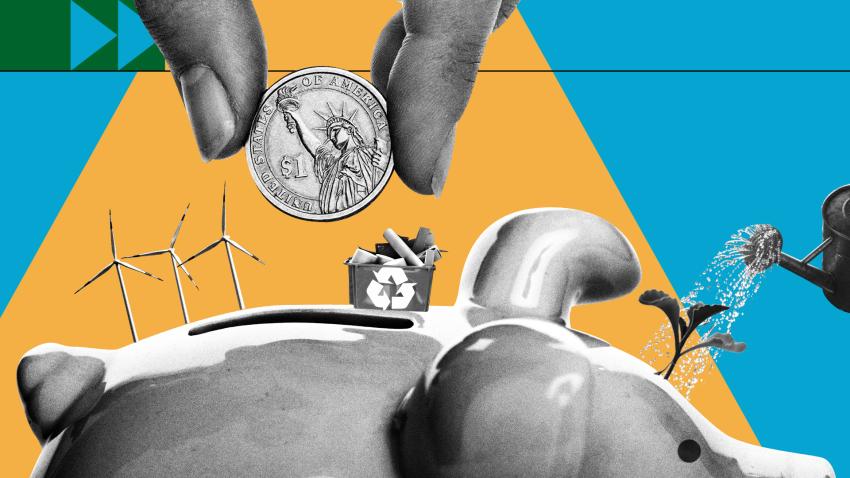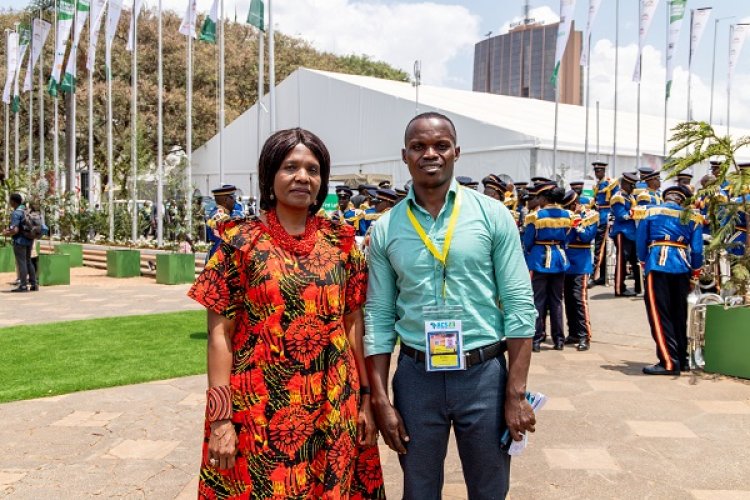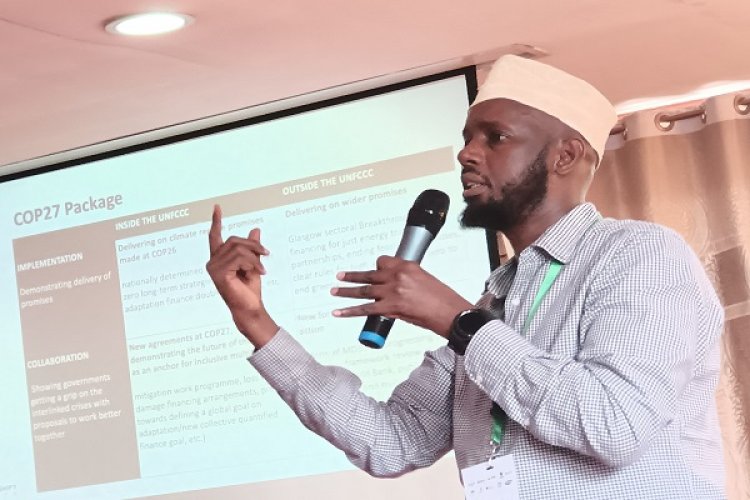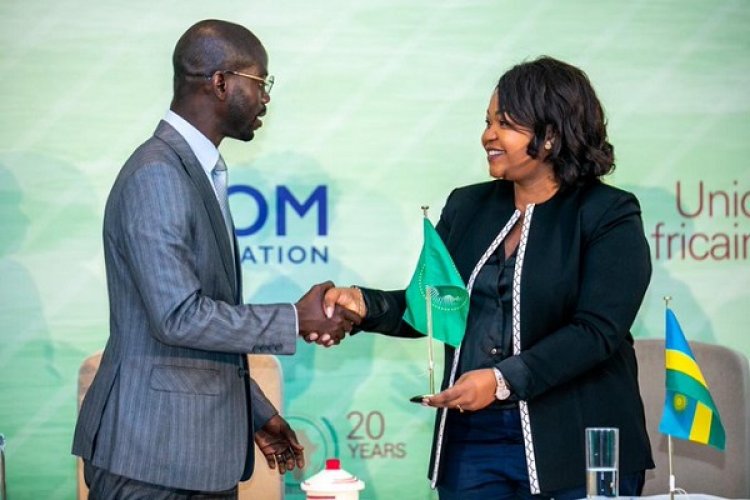With the United States’ recent Presidential elections win by Donald Trump, a global warming skeptic, the question on the mind of environment watchdogs is how this outcome will likely affect the ongoing fight against climate change.
In particular, Donald Trump’s recent victory looms large in the corridors of power in Baku, Azerbaijan where global leaders are meeting this month for weeks-long climate talks at this year’s UN Climate Conference (COP29).
The Biden administration had on October 31 designated a delegation to COP29 led by John Podesta, his senior advisor on international climate policy ‘to highlight U.S. leadership on tackling the climate crisis and to work towards strong negotiated outcomes.’
The delegation joined negotiators for other countries at the summit happening ahead of Governments’ expected release of the next generation of climate plans popularly known as National Determined Contributions (NDCs), among other measures they commit to undertake to fight the climate crisis following years of efforts marred by unfullfilled pledges.
There is also the ongoing push to have nations responsible for causing climate change like the US, second largest emitter after China, meet legal and financial obligations to the developing world most vulnerable to climate change impacts.
Monies to be mobilised in the long awaited loss and damage fund are urgently needed to help nations bearing the worst of climate change effects cope and embark on a green future.
ALSO READ: Leaders in fresh push for redesign of green projects financing
There are worries, however, that pledges by the US at this year’s climate talks could be reversed by Trump when he officially takes office early next year.
Trump doubts the climate crisis is real and the last time he was at the helm, he was quick to withdraw the US from the Paris agreement, a pact of global nations to check global temperature rise.
His win again spells doom for gains made so far and prospects of progress on key contentious climate justice issues.
According to the environment and development organization Germanwatch, Trump might not only take the United States out of the Paris Agreement, yet again, but might also try to leave the overarching UN Framework Convention on Climate Change.
Christoph Bals, Policy Director expresses concerns that the US being the world’s second largest emitter of greenhouse gases, its historical responsibility for causing the increasing impacts of climate change will increase further as a result of Trump’s irresponsible policies.
“Another Trump term in office with a Republican majority in Congress is seriously bad news. Trump doubts that the climate crisis is real and will work to increase oil and gas production, even though this is destroying the livelihoods of our planet. But the climate crisis will not tolerate any delay in action, and physics doesn’t care who is in the White House,” says Bals in a press release this week.
According to the Watchdog, there is need for the international community to prove at the upcoming COP29 climate summit in Baku and the G20 summit in Rio that it will be able to take climate action without the government of the United States if necessary.
Casualties
Previous climate talks did little to get global emitters to tame the Earth warming situation. Weather-induced vagaries only intensified with floods, heatwaves and record temperatures causing the climate crisis to reach a new peak in 2024.
22 July this year was the hottest day ever recorded on Earth, indicated the United Nations. Scientists who authored the 2024 state of the climate report sounded the alarm that much of the very fabric of life on Earth is imperiled, and warned of “a dire situation never before encountered in the annals of human existence”.
It is Africa, a continent least responsible of emissions that cause climate change, that has been at the receiving end of the vagaries arising from global warming with 17 out of 20 countries most affected by climate change being from the continent.
Another Trump term in office with a Republican majority in Congress is seriously bad news. Trump doubts that the climate crisis is real and will work to increase oil and gas production, even though this is destroying the livelihoods of our planet.
Christoph Bals, Policy Director, Germawatch
Cries, agonies and sufferings of those affected dominated the news during and in aftermaths of floods and prolonged droughts which hit parts of Central and Western Africa in recent months.
Each year, scores of people in Chad, Central African Republic, Eritrea, Somalia, Sudan and others are forced to abandon their homes and ancestral lands for good after disasters erode possibilities of life and survival in areas where crop and livestock farming is the main source of living.
ALSO READ: Is full legal protection for Africa climate migrants finally in sight?
Estimated 3.6 million people currently reel from effects of the warming planet across Africa and parts of the globe where their survival depends solely on humanitarian aid which equally suffered huge funding deficits.
Push to have global emitters pay for losses and damages associated with climate change in affected countries so far yielded little success. Only $700 million was pledges at COP28 last year. The sum is a far cry from estimated $580 billion needed annually by 2030, and an annual total of $1.7 trillion beyond.
“In my opinion if the countries could get the compensation, we wouldn’t need much NGO or humanitarian support because the countries will have the structure of funding to invest in infrastructure and cope. I don’t think really that we’ve done enough in supporting this process,” Mariangela D’Adamo, Global WASH Cluster (GWC) told NewsPaper Africa.
GWC works to strengthen effective and accountable humanitarian coordination for water, sanitation and hygiene globally.
Cost of inaction
A new report by Intergovernmental Panel on Climate Change (IPCC) indicates that current global financial flows for adaptation are insufficient, thus affected countries and communities have no funds to opt for adaptations activities, things such as irrigation, agroforestry, restoration of wetlands, early warning systems and the likes.
Several mitigation options, too, notably solar or wind energy, electrification of urban systems, urban green infrastructure, or reduction of food waste and loss could not get adequate support.
The question of finance ranks among key unfinished tasks that COP29 must tackle, says Allied for Climate Transformation, a consortium of environment watchdogs working to influence UN climate negotiations.
ALSO READ: Will historical emitters heed Africa call for debt-for-climate swaps?










